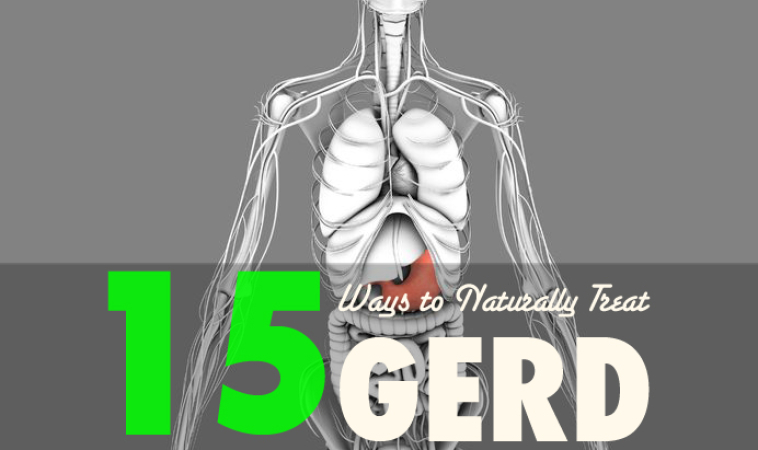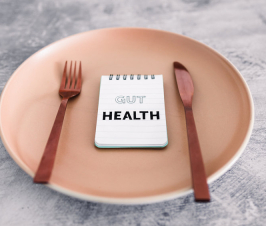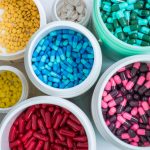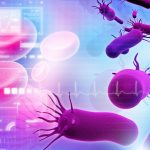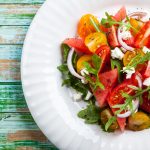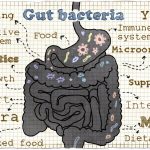Dr. Sarah Cimperman, ND
@DrCimperman
Have you Heard of GERD? (Of Course You Have)
Approximately 6 out of 10 adults in the United States suffer from gastroesophageal reflux disease, also known as GERD, and 3 in 10 experience symptoms on a weekly basis. The most common symptoms are a burning sensation in the chest or throat and a sour taste in the mouth, but others exist: difficulty swallowing, sore throat, hoarseness, dry cough, regurgitation, the sensation of a lump in the throat, and even chest pain.
The most common treatment for GERD is medication that targets stomach acid in 1 of 3 ways:
- Antacids like Maalox, Mylanta, Gaviscon, Rolaids, and Tums neutralize stomach acid.
- H2 blockers like Zantac, Pepcid, and Tagamet reduce the production of stomach acid indirectly by inhibiting the activity of histamine.
- Proton pump inhibitors (PPIs) like Nexium, Prevacid, Prilosec, and Protonix reduce levels of stomach acid directly by blocking the final step of acid production.
These drugs are not always well tolerated. Side effects may include nausea, vomiting, diarrhea, flatulence, headache, and dizziness. PPIs have also been associated with an increased risk of bone fractures, pneumonia, and dementia, and there are concerns about an increased risk for cardiovascular events, especially when these drugs are used in combination with other drugs.1
Furthermore, reducing the production of stomach acid can have dangerous consequences. When our stomachs are not acidic enough, we don’t absorb certain nutrients very well and may develop deficiencies of vitamins like B12 and minerals like calcium, magnesium, zinc, and iron.2 Low stomach acid also causes imbalances in the microorganisms that inhabit our bodies. It promotes bacterial overgrowth in the stomach and small intestine (SIBO) and makes us more vulnerable to infection from food-borne bacteria, bacteria that produce chemicals (nitrosamines) linked to stomach cancer, and antibiotic-resistant bacteria like C. difficile.3
Acid-reducing Drugs are Intended to be Used for Weeks, not Forever
Acid-reducing drugs are intended to be used for only 8 weeks, but people often use them longer or even indefinitely. The longer these medications are used, the more difficult it is to stop using them because cessation can have a rebound effect, triggering a sudden increase in stomach acid production and a severe aggravation of symptoms. These drugs, particularly PPIs, should never be discontinued without a doctor’s supervision.
LES
In some cases, like those involving ulcers, drugs that reduce stomach acid production may be necessary for healing to happen. But in many cases, their risks outweigh their benefits because GERD is not caused by too much stomach acid. It’s caused by incomplete closure of the valve that separates the stomach from the esophagus. Every time you swallow, a doughnut-shaped muscle called the lower esophageal sphincter or LES relaxes to open the passage, allowing food and liquid to travel from the esophagus into the stomach. Then it constricts to tighten back up again, closing the passage to keep the contents of the stomach inside the stomach.
When the LES isn’t tight enough, acid from the stomach can travel up into the esophagus where it causes inflammation and damages delicate tissues that were never meant to encounter an acidic environment. If this happens over and over, inflammation in the esophagus can become chronic and may lead to bleeding and narrowing. Chronic esophageal inflammation also increases the risk of developing esophageal cancer.
To treat the real cause of GERD and reduce the risk of cancer, it’s important to tighten the LES, heal inflamed tissue in the esophagus, and maintain good digestion. Tightening the LES stops reflux and healing the esophagus resolves inflammation and discomfort. Digesting our food fully is important because when it’s not properly broken down, it lingers too long in the stomach and puts pressure on the LES, making it less likely to stay tightly closed.
Here are 15 ways to get started:
- Avoid foods that relax the LES or otherwise aggravate GERD: coffee, tea, alcohol, carbonated beverages, dairy products, citrus fruits and juices, chocolate, peppermint, chocolate, tomatoes, onions, spicy foods, fried foods, oily foods, and high-fat foods.
- Avoid foods that promote inflammation including sweet, starchy, and processed foods.
- Start every meal with a salad of raw leafy greens tossed with raw vinegar, a small amount of cold-pressed oil (extra virgin olive, walnut, flax), and a pinch of sea salt if you wish.
- Chew your food thoroughly, at least 20 to 30 chews per mouthful.
- Avoid overeating. Having too much food in the stomach puts pressure on the LES, so if you have to, consume smaller, more frequent meals instead of fewer, larger meals.
- Avoid drinking liquids just before you eat, during meals, and for at least 30 minutes after eating. If you’re thirsty, it’s OK to sip water, but do so sparingly. Consuming too much liquid with meals can dilute stomach acid, which slows digestion and delays stomach emptying, which puts pressure on the LES.
- Make dinner your lightest meal and avoid snacking before bed. After eating, do not lay down for at least two hours. If you’re uncomfortable laying down, raise the head of the bed by six inches.
- Chew on DGL. Studies show that deglycyrrhizinated licorice can heal gastric ulcers as well as prescription medication.4 To be effective, it has to be mixed with saliva, so look for chewable lozenges with as few additives as possible.
- Maintain a healthy weight. Excess abdominal fat puts pressure on the LES, so if you’re overweight, talk to your doctor about losing it in a healthy and sustainable way.
- Avoid tight-fitting clothes. Constriction of the abdomen puts pressure on the LES.
- Stop smoking. Cigarette smoking makes the LES more lax.5
- Practice relaxation. Stress can exacerbate GERD so it’s important to manage it effectively.6
- Treat conditions that contribute or predispose to GERD including digestive problems, hiatal hernia, asthma, and diabetes.
- Seek alternatives to medications that promote or aggravate GERD. These may include antibiotics, anticholinergics prescribed for overactive bladder and irritable bowel syndrome, bisphosphonates for bone loss, calcium channel blockers and nitrates for high blood pressure and heart disease, non-steroidal anti-inflammatory drugs, narcotics, benzodiazepines, progesterone, quinidine, and theophylline.
- Talk to your naturopathic doctor about supplements to soothe and heal irritated and inflamed tissue, to tighten the LES, increase stomach acidity, improve digestion, and/or balance gut microbiota. If you don’t get better, it will be important to investigate further because you may have a more serious condition.
 Sarah Cimperman, ND is the author of the book, The Prediabetes Detox: A Whole-Body Program to Balance Your Blood Sugar, Increase Energy, and Reduce Sugar Cravings. She graduated from NCNM in 2002 and has a private practice in New York City. Her expertise has been featured onFox News and Huffington Post and in Natural Health magazine,Whole Living magazine, and the Well Being Journal, among other publications. Dr. Cimperman also writes two blogs, A Different Kind Of Doctor and The Naturopathic Gourmet.
Sarah Cimperman, ND is the author of the book, The Prediabetes Detox: A Whole-Body Program to Balance Your Blood Sugar, Increase Energy, and Reduce Sugar Cravings. She graduated from NCNM in 2002 and has a private practice in New York City. Her expertise has been featured onFox News and Huffington Post and in Natural Health magazine,Whole Living magazine, and the Well Being Journal, among other publications. Dr. Cimperman also writes two blogs, A Different Kind Of Doctor and The Naturopathic Gourmet.
References:
- Ghebremariam YT, LePendu P, Lee JC, Erlanson DA, Slaviero A, Shah NH, Leiper J, Cooke JP. Unexpected effect of proton pump inhibitors: elevation of the cardiovascular risk factor asymmetric dimethylarginine. Circulation. 2013;128(8):845-53. http://www.ncbi.nlm.nih.gov/pubmed/23825361
- Ito T and Jensen RT. Association of Long-term Proton Pump Inhibitor Therapy with Bone Fractures and effects on Absorption of Calcium, Vitamin B12, Iron, and Magnesium. Current Gastroenterology Reports. 2010;12(6):448–457. http://www.ncbi.nlm.nih.gov/pmc/articles/PMC2974811/
- Bures J, Cyrany J, Kohoutova D, Förstl M, Rejchrt S, Kvetina J, Vorisek V, Kopacova M. Small intestinal bacterial overgrowth syndrome. World Journal of Gastroenterology. 2010;16(24):2978–2990. http://www.ncbi.nlm.nih.gov/pmc/articles/PMC2890937/
- Morgan AG, Pacsoo C, and McAdam WA. Maintenance therapy: a two year comparison between Caved-S and cimetidine treatment in the prevention of symptomatic gastric ulcer recurrence. Gut. 1985;26(6):599–602.
- http://www.ncbi.nlm.nih.gov/pmc/articles/PMC1432764/
- Kahrilas PJ and Gupta RR. Mechanisms of acid reflux associated with cigarette smoking. Gut. 1990;31(1):4–10. http://www.ncbi.nlm.nih.gov/pmc/articles/PMC1378332/
- Konturek PC1, Brzozowski T, Konturek SJ. Stress and the gut: pathophysiology, clinical consequences, diagnostic approach and treatment options. Journal of Physiology and Pharmacology. 2011;62(6):591-9. http://www.ncbi.nlm.nih.gov/pubmed/22314561

